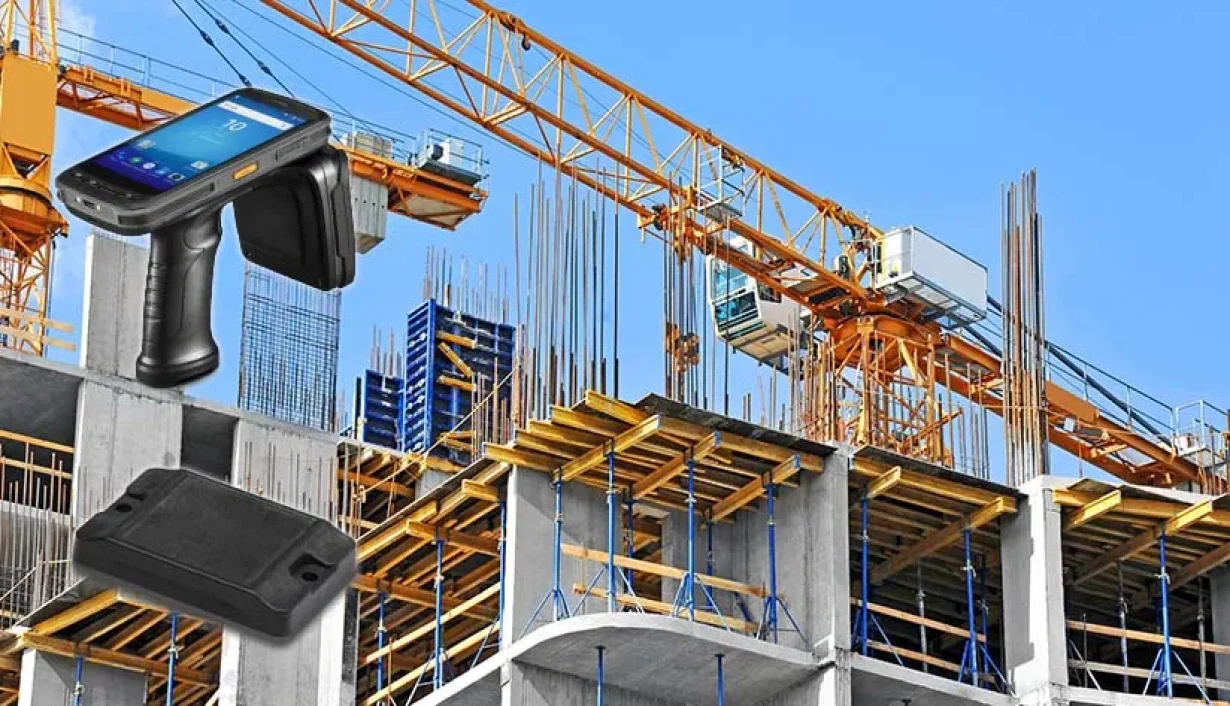
Construction sites are a whirlwind of activity – massive projects, tight deadlines, and intricate logistics. Efficiency isn’t just a goal; it’s the lifeline of any successful build. For years, the industry has relied on traditional methods, but now, a game-changing technology is stepping onto the scene: Radio Frequency Identification (RFID). This isn’t just another tech buzzword; RFID is fundamentally reshaping construction, driving unprecedented efficiency, and paving the way for smarter, safer, and more streamlined projects. Let’s dive into how RFID tags are revolutionizing construction as we know it.
1. RFID Technology: A Quick Primer
Imagine a world where you can track every piece of material, every tool, and even personnel on a construction site in real-time, wirelessly. That’s the power of RFID. At its core, RFID is a wireless communication technology that uses electromagnetic fields to automatically identify and track tags attached to objects. Think of it as a supercharged barcode system, but without the need for line-of-sight scanning.
These tags, tiny marvels of engineering, consist of a small chip and an antenna. Affix them to construction materials, embed them in tools, or even integrate them into worker uniforms. Each tag stores unique identification information. When an RFID reader emits a signal, these tags respond, broadcasting their stored data. Instantly, you have real-time visibility of your assets. It’s about moving from guesswork to data-driven decisions on the construction job site.
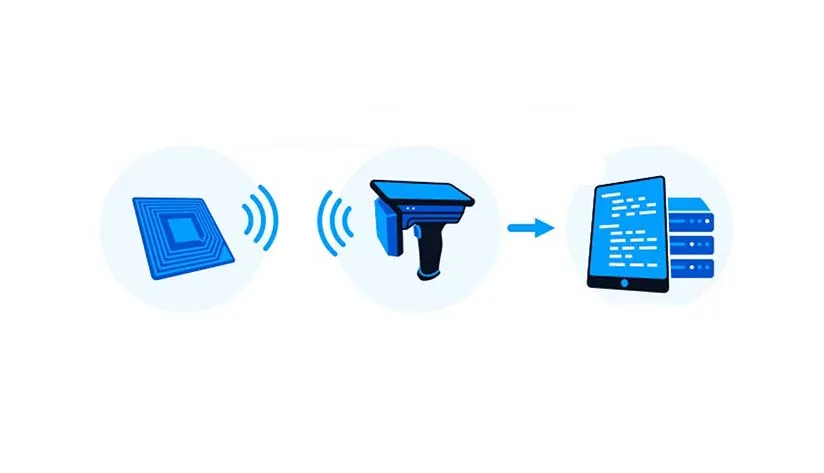
Types of RFID Tags Transforming Construction:
The versatility of RFID shines through in the variety of tags designed for specific construction needs:
RFID Cable Tie Tags: Imagine zip ties, but smarter. These tags integrate an RFID chip into a standard cable tie, perfect for securing and tracking irregular tools and equipment – think power drills, extension cords, and scaffolding components. They offer a robust and flexible solution for managing diverse assets.
RFID Laundry Tags: Worker safety and accountability take a leap forward with these tags. Sewn into uniforms, they enable precise attendance tracking and even real-time location monitoring within the site. Know who is where, enhancing safety protocols and optimizing workforce management.
RFID Industrial Tags: Construction environments are tough. Industrial RFID tags are tougher. This broad category encompasses tags engineered to withstand harsh conditions – extreme temperatures, corrosion, abrasion, and more. Concrete RFID tags, for instance, are specifically designed to be embedded directly into concrete structures, providing permanent asset tracking for the lifespan of the building. These are built for durability and long-term performance.
RFID On-Metal Tags: Metal poses a challenge for standard RFID, but on-metal RFID tags overcome this hurdle. Designed to resist interference from metallic environments, they are essential in construction where steel, aluminum, and other metals are prevalent. Track metal beams, pipes, and heavy machinery with confidence.
2. RFID Applications: Building a Better Construction Industry
From real-time asset visibility to enhanced safety protocols, RFID applications are diverse and impactful. This technology is rapidly becoming indispensable for construction companies aiming to boost productivity, minimize errors, and create safer work environments. Let’s explore the key areas where RFID is making a significant difference.
2.1 Revolutionizing Inventory Management with RFID
Efficient inventory management is the backbone of any project’s smooth operation. Construction sites are sprawling inventories of materials, tools, and equipment. Traditional methods – manual counts, barcode scanning – are often slow, error-prone, and resource-intensive. Mistakes here translate to delays, cost overruns, and project headaches.
RFID inventory systems offer an automated, accurate, and lightning-fast solution. Imagine instantly knowing the quantity and location of every pallet of bricks, every roll of cable, every piece of lumber. RFID eliminates manual data entry, slashing errors and providing a real-time, accurate inventory picture.
Benefits of RFID in Construction Inventory Management:
- Unmatched Accuracy: Say goodbye to manual counting errors. RFID’s automated data capture ensures inventory data is consistently accurate, eliminating discrepancies and preventing costly mistakes.
- Significant Time Savings: Automated tracking dramatically reduces time spent on manual stocktakes. Construction managers and teams can refocus their energy on critical project tasks, not tedious counting.
- Real-Time Visibility: RFID provides up-to-the-minute inventory updates. Track material flow, anticipate shortages before they cause delays, and prevent overstocking – optimizing your material resources.
- Enhanced Accountability and Loss Prevention: RFID tags offer item-level traceability. Pinpoint the origin and usage of each item, deterring loss and theft, and improving overall asset accountability.
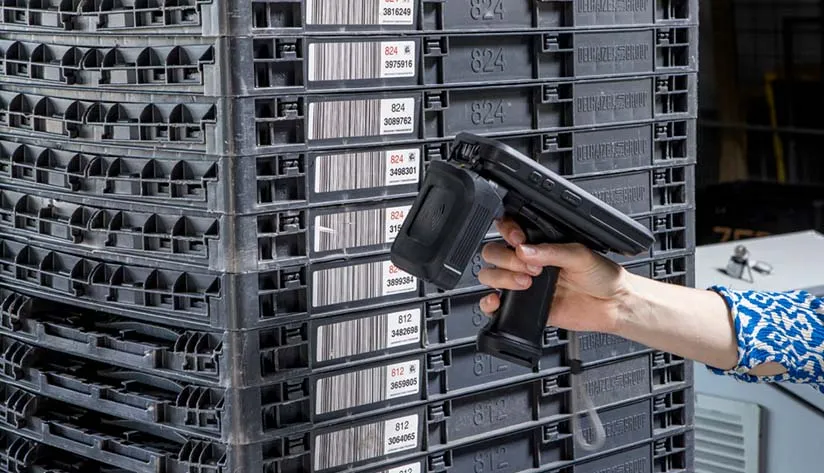
2.2 Optimizing Equipment Management and Utilization
Construction equipment – from excavators to power tools – represents a significant investment. Knowing where each piece of equipment is, its operational status, and usage patterns is crucial for maximizing ROI and minimizing downtime. Traditional equipment management often relies on manual logs and visual checks – methods that are inefficient and offer limited real-time insights.
RFID equipment tracking transforms equipment management. By tagging tools and machinery with RFID, managers gain real-time visibility into location and usage. RFID data pinpoints underutilized equipment, flags maintenance needs proactively, and ensures optimal deployment across job sites.
Advantages of RFID for Equipment Management:
- Proactive Maintenance Scheduling: RFID systems can store equipment performance data and maintenance logs. Managers can schedule preventative maintenance, minimizing breakdowns and costly emergency repairs, extending equipment lifespan.
- Optimized Equipment Allocation: Track equipment usage across multiple sites. RFID data reveals utilization rates, ensuring equipment is efficiently deployed and preventing unnecessary rentals or purchases.
- Precise Location Tracking: No more searching for missing tools or machinery. RFID provides real-time location data, minimizing loss and misplacement, saving valuable time and resources.
2.3 Elevating Site Safety and Regulatory Compliance
Safety on construction sites is paramount. The industry inherently carries high risks, making robust safety management not just ethical, but also legally and financially critical. RFID safety solutions are empowering construction companies to proactively enhance safety protocols and ensure adherence to regulations.
Enhancing Worker Safety with RFID
Imagine a system that automatically monitors worker locations in real-time, ensuring they are in designated safe zones. By embedding RFID tags in uniforms or helmets, managers gain this critical capability. RFID worker tracking can trigger alerts when personnel enter hazardous areas, proactively preventing accidents. Furthermore, integrate RFID with access control and safety equipment systems to automatically log work hours and verify the use of required safety gear.
Benefits of RFID in Construction Safety Management:
- Proactive Hazard Prevention: RFID systems create geofences and trigger instant alerts when workers enter restricted or dangerous zones. This real-time warning system enables immediate intervention, preventing potential incidents before they occur.
- Automated Attendance and Time Tracking: RFID automatically logs worker attendance, ensuring accurate payroll and minimizing time theft, streamlining administrative processes.
- Ensuring Regulatory Compliance: RFID systems can verify if workers have the necessary safety certifications and are using required safety equipment. This automated compliance check helps businesses meet stringent regulatory standards and avoid penalties.
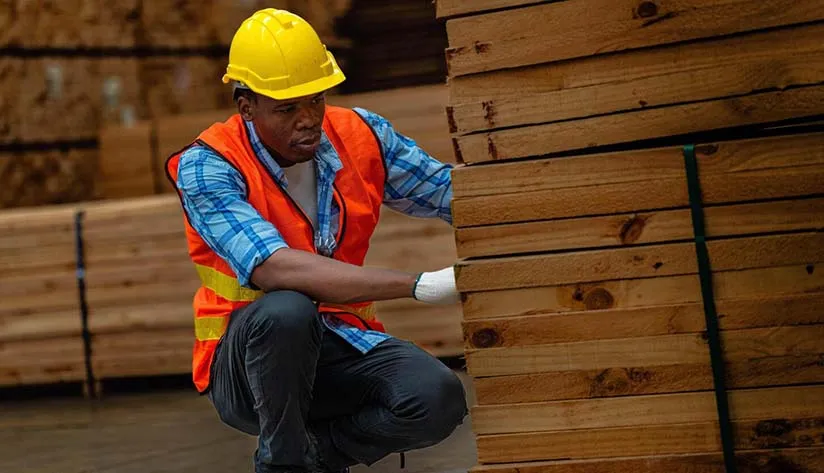
2.4 Minimizing Project Delays and Cost Overruns
Project delays and budget overruns are unfortunately common challenges in construction. Effective project management hinges on accurate tracking and timely issue resolution. RFID project management solutions provide the granular data needed to anticipate and address potential problems, optimizing workflows and keeping projects on schedule and within budget.
RFID: Keeping Projects on Schedule
RFID ensures that critical materials and equipment are available when and where needed. Real-time tracking minimizes wait times, eliminates bottlenecks caused by missing resources, and keeps project progress flowing smoothly, ensuring on-time completion.
RFID: Controlling Costs Effectively
By providing real-time visibility into material and equipment usage, RFID empowers managers to make informed purchasing decisions. Avoid over-ordering, reduce material waste, minimize equipment downtime, and gain tighter control over project expenditures, preventing budget overruns.
2.5 RFID’s Role in Streamlined Construction Project Management
Construction project managers juggle countless variables – timelines, resource allocation, and coordination across diverse teams. RFID technology for construction provides a powerful toolkit, offering real-time project insights and enabling proactive adjustments to keep everything on track.
Boosting Project Scheduling Efficiency with RFID
Real-time location tracking of materials and equipment allows project managers to dynamically adjust schedules. Ensure resources are allocated precisely when and where they are needed, preempting delays and optimizing project timelines.
RFID: Facilitating Seamless Team Coordination
Effective communication and collaboration are essential in complex construction projects. RFID fosters seamless coordination between procurement, construction, and equipment maintenance teams. Real-time data updates keep all stakeholders synchronized, improving communication and teamwork efficiency.

2.6 RFID and Sustainable Construction Practices
Sustainability is no longer optional; it’s a core demand in modern construction. Green building with RFID plays a vital role in minimizing resource waste, promoting efficient resource utilization, and contributing to environmentally responsible construction practices.
Reducing Material Waste with RFID Tracking
Precise material tracking with RFID empowers managers to optimize inventory levels and prevent over-purchasing. By minimizing excess materials on site, RFID directly contributes to reducing construction waste and promoting resource conservation.
RFID: Driving Green Building Initiatives
By enhancing operational efficiency across construction projects, RFID indirectly contributes to reduced energy consumption and lower carbon emissions. Streamlined processes, optimized resource use, and minimized waste all contribute to greener, more sustainable building practices.
Conclusion: Building the Future with RFID
RFID technology is not just incrementally improving construction; it’s fundamentally transforming the industry. From revolutionizing inventory management to enhancing worker safety and optimizing equipment maintenance, RFID applications deliver tangible benefits across the construction lifecycle. The technology drives efficiency gains, reduces operational costs, and promotes sustainable practices – a win-win for construction companies and the environment.
As RFID technology continues to advance, expect even more sophisticated and intelligent management solutions for the construction sector. Embrace RFID to build projects that are not only more efficient and accurate but also safer and more transparent. The time to adopt this transformative technology is now.
Ready to explore how RFID solutions can optimize your construction projects? Contact our expert team today for personalized advice and support. Let us help you build a smarter, more efficient future.
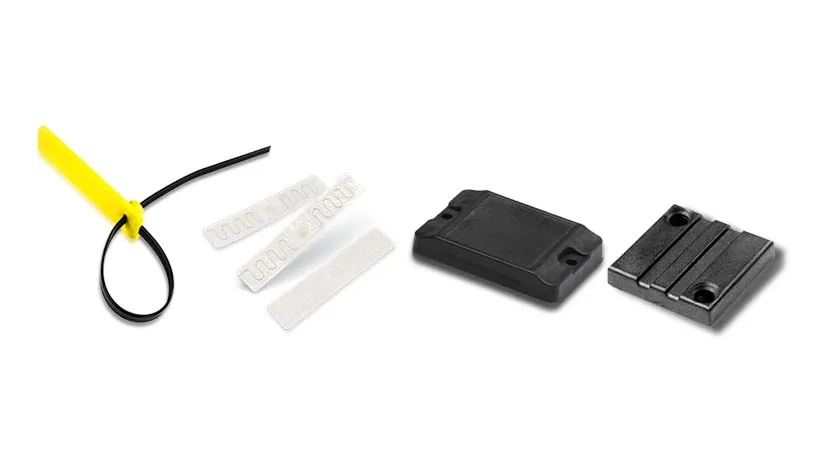
Frequently Asked Questions (FAQ)
1. How do RFID tags function within the construction industry?
RFID tags communicate wirelessly with readers using electromagnetic fields. This enables real-time tracking of construction materials, tools, and equipment, providing up-to-the-minute location and status updates.
2. Is RFID technology suitable for tracking construction personnel?
Yes, embedding RFID tags in worker uniforms or helmets allows for real-time location monitoring. This enhances site safety and ensures adherence to safety protocols and designated work zones.
3. In what ways does RFID contribute to reducing project delays in construction?
RFID ensures timely availability of materials and equipment by providing accurate location and inventory data. This minimizes delays caused by resource shortages or misplaced equipment, keeping projects on schedule.
4. Does adopting RFID technology align with sustainable development goals in construction?
Yes, RFID technology supports sustainability by optimizing resource management and minimizing waste. By promoting efficient material use and reducing loss, RFID contributes to greener and more environmentally responsible construction practices.
Recommended Products
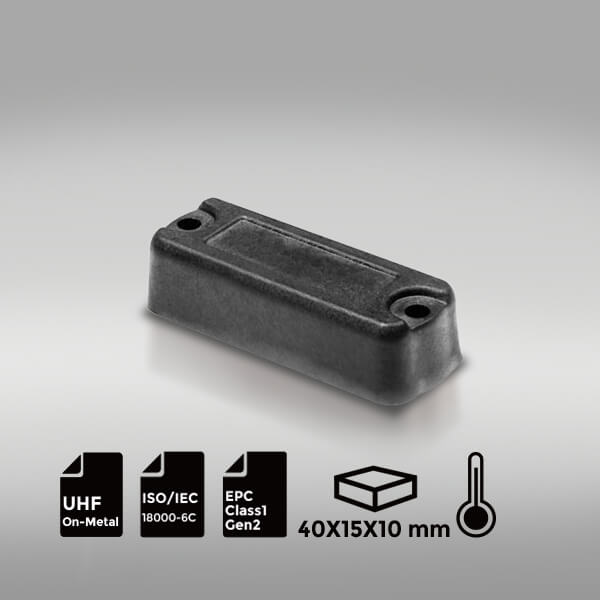
Heat Resistant UCODE8 PEEK RFID On-Metal Tag | 40×15mm
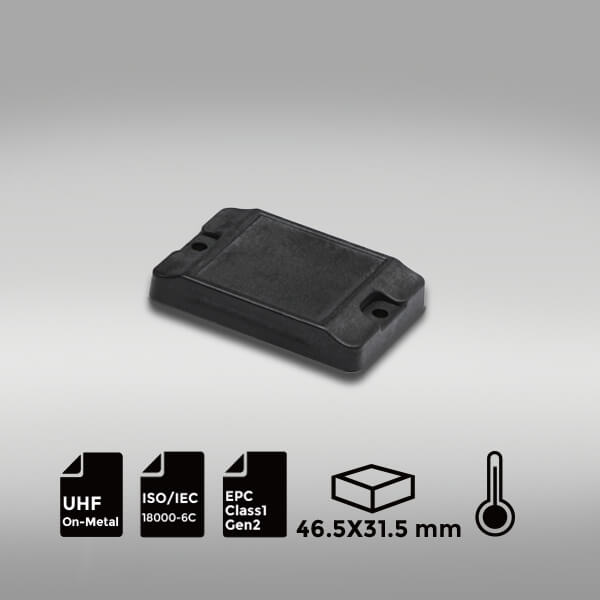
Concrete UCODE8 PPS RFID Tag | 46.5×31.5mm
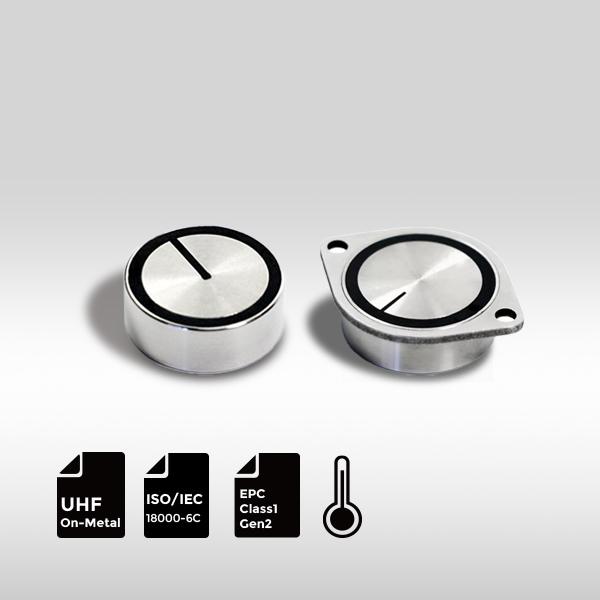
Heat Resistant UCODE8 Stainless Steel RFID Embedded Tag

Concrete Alien H9 PPS RFID Tag | 46.5×31.5 mm
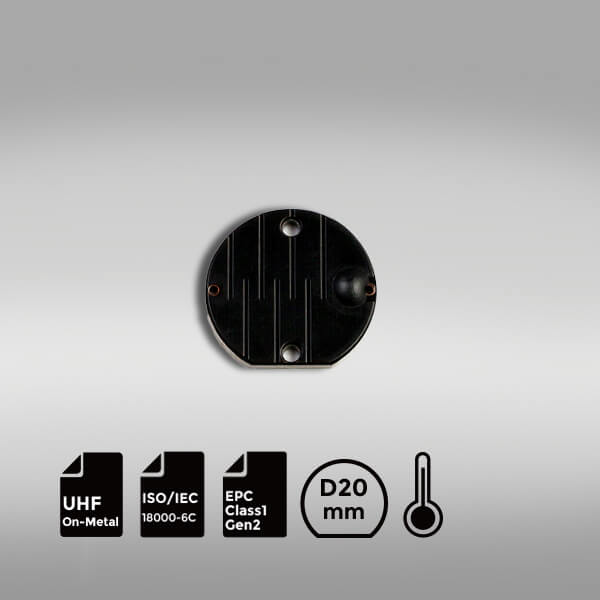
Heat Resistant Alien H4 High Temperature Material RFID On-metal Tag
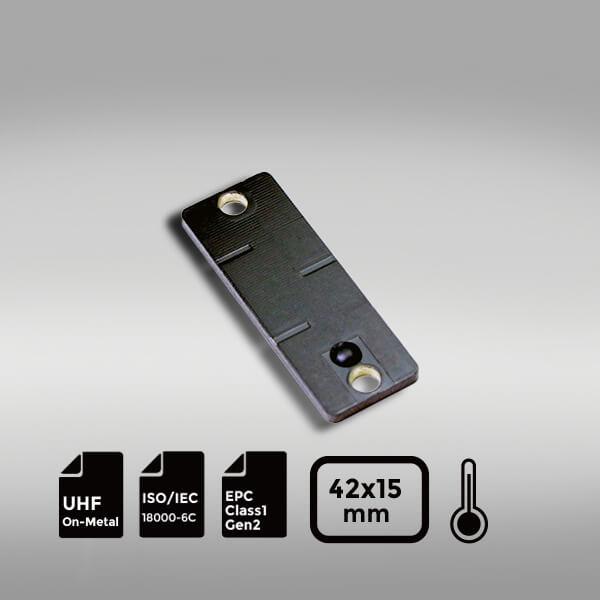
Heat Resistant Alien H4 Heat Resistant Material UHF On-Metal Tag | 42x15mm
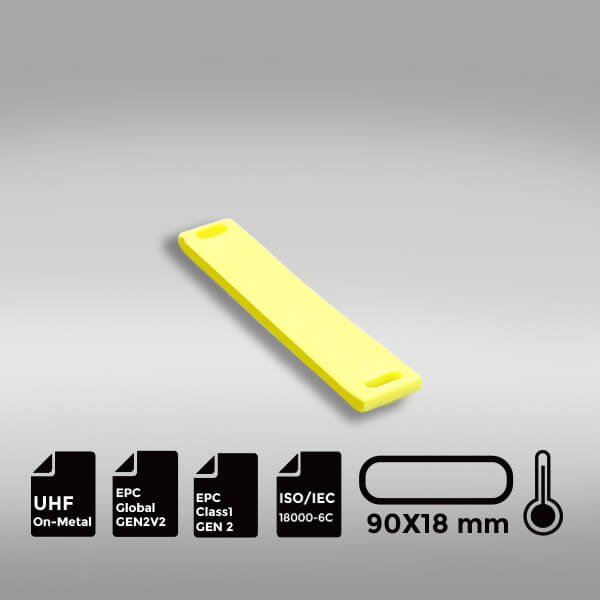
Flexible On-metal Impinj MR6 TPU UHF RFID Tag | 90x18mm
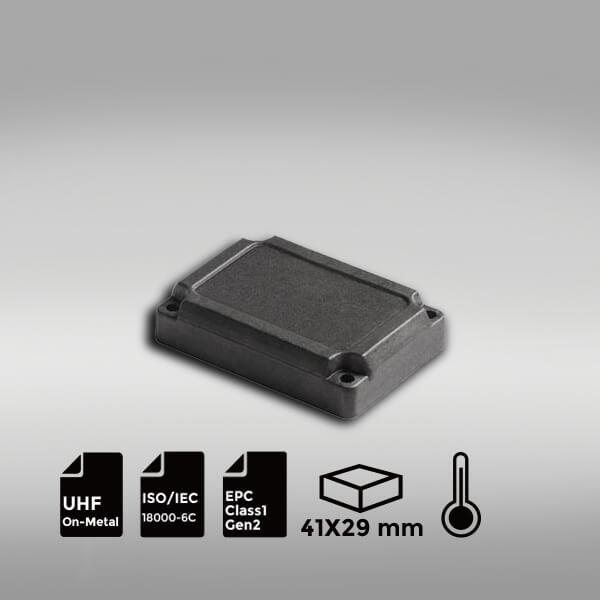
Chemical Resistant UCODE8 PEEK RFID On-Metal Tag | 41×29 mm
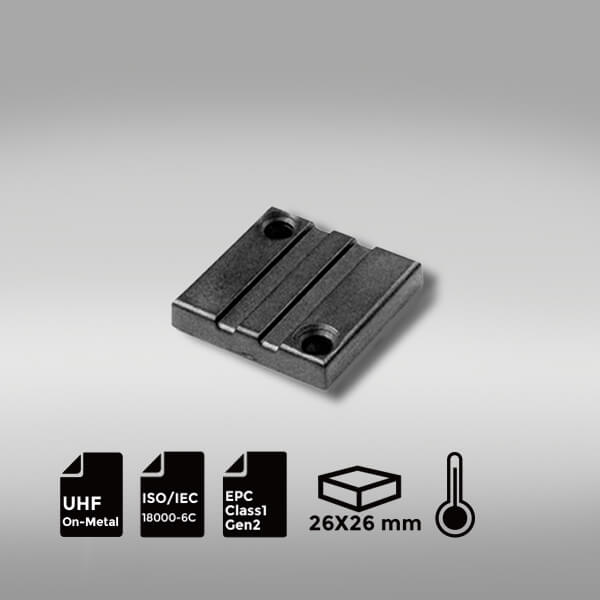
Heat Resistant Alien H3 PPS RFID On-Metal Tag | 26×26mm

Heat Resistant UCODE8 PPS RFID On-metal Tag | 26×26mm
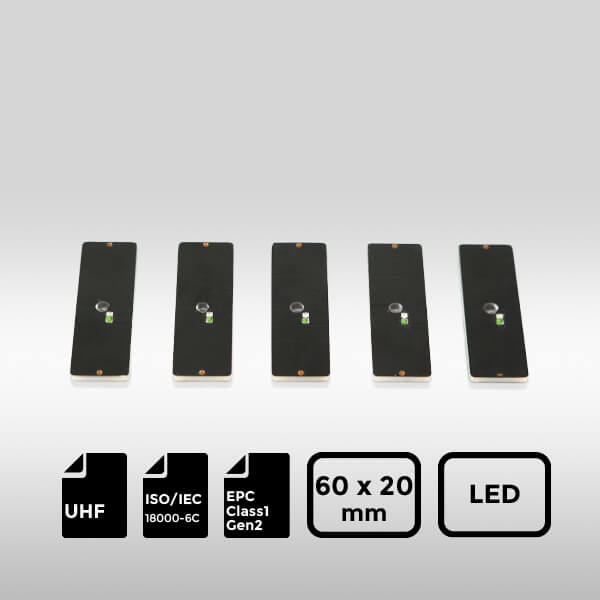
UHF On-Metal LED Tag 60×20×3mm | ISO18000-6C
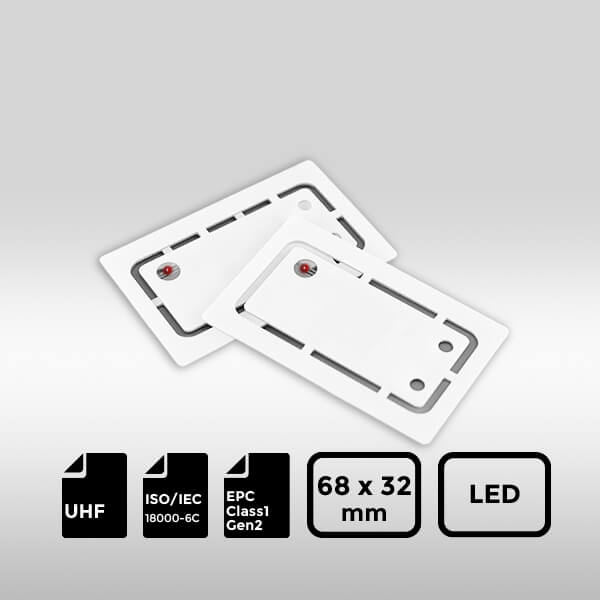

RFID Antenna UHF
15-Meter Cable for UHF RFID Fixed Reader
UHF Tag
4″x2″ 860-960MHz UHF RFID Label RFID M4D
UHF Tag
4″x4″UHF RFID Label Alien H3 | ISO18000-6C
RFID Antenna UHF
5-Meter Cable for UHF RFID Fixed Reader
HF Card
ABS RFID KEY-FOB Tag RFID Classic 1K
HF Card
ABS RFID KEY-FOB Tag RFID Classic 4K
HF Card
ABS RFID KEY-FOB Tag RFID Ultralight C
HF Tag
ABS RFID KEY-FOB Tag RFID Ultralight EV1
LF Card
ABS RFID KEY-FOB Tag ATA5577
LF Card
ABS RFID KEY-FOB Tag EM4200
HF Card
ABS RFID KEY-FOB Tag EM4305
HF Card
ABS RFID KEY-FOB Tag RFID TAG 213